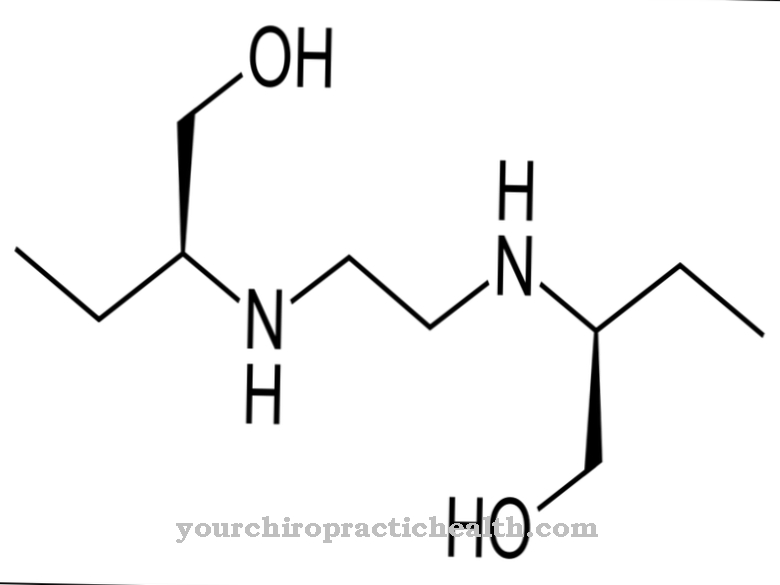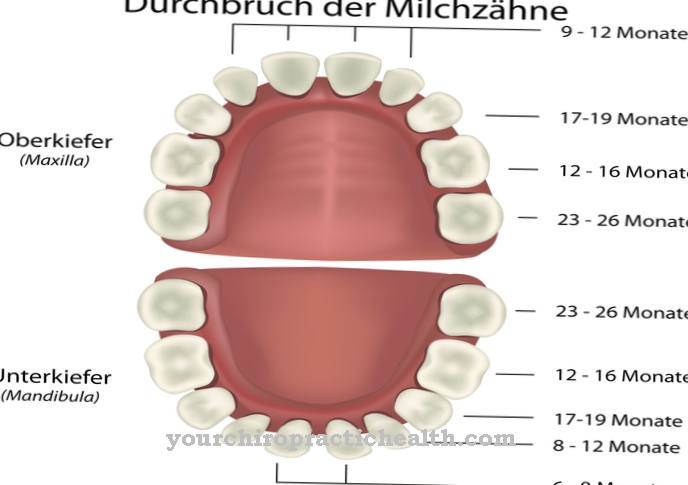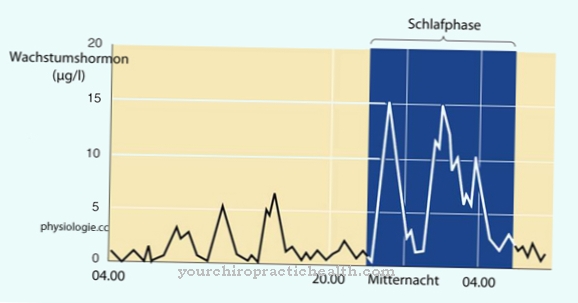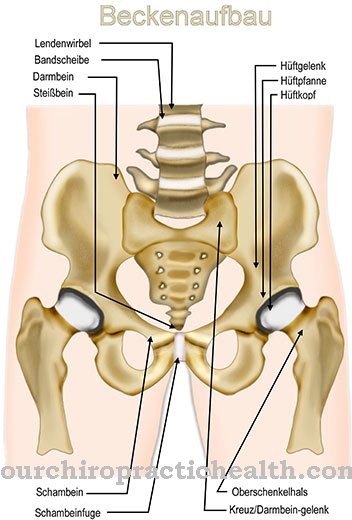Aclidinium bromide is one of the anticholinerga. It is used to treat adults with chronic obstructive pulmonary disease (COPD). The drug is offered as a powder for inhalation.
What is aclidinium bromide?

The active ingredient aclidinium bromide is available in the EU under the trade names Eklira Genuair® and Bretaris Genuair®. The medicinal product is approved for the symptomatic long-term bronchodilator treatment of adults with chronic obstructive pulmonary disease (COPD).
It improves symptoms such as chronic coughs and shortness of breath. It is taken as a dry powder through a Genuair inhaler with a usual frequency of twice a day. The drug is suitable for long-term therapy. The long-acting drug dilates the bronchi and has parasympathological properties.
Aclidinium bromide is quickly absorbed from the lungs. It usually works within 15 minutes. This makes it a good therapy for chronically ill patients. As a long-acting bronchodilator, however, it is not an option in an emergency situation. It is also not suitable as an asthma medication.
Pharmacological effect
Aclidinium bromide improves lung function and is used in adults to treat COPD. The effects of administration of aclidinium bromide are bronchodilator and parasympatholytic. An initial relief of symptoms occurs within 15 minutes of inhalation.
The effect of aclidinium bromide is based on antagonism at muscarinic receptors within the airways. Aclidinium bromide binds longer to M3 receptors (muscarinic receptors M3) and shorter to M2 receptors (muscarinic receptors M2). M3 receptors are responsible for smooth muscle contractions in the airways.
If this function is blocked by the administration of aclidinium bromide, there is a prolonged inhibition of the bronchial constriction caused by acetylcholine. In plasma, aclidinium bromide is rapidly hydrolyzed to an inactive alcohol metabolite and a carboxylic acid metabolite, reducing the risk of possible side effects outside the lungs.
As an anticholinergic substance, the administration of aclidinium bromide can affect the heart and blood vessels. Therefore, possible cardiovascular effects must be closely monitored. Aclidinium bromide should be used with great caution in patients with certain pre-existing cardiovascular diseases.
As is generally possible with inhalation treatments, the inhalation of aclidinium bromide can also lead to paradoxical bronchospasm. In such a case, the treatment should be stopped immediately and the doctor should be contacted.
Medical application & use
With a chronic obstructive pulmonary disease - COPD for short - the lungs are permanently damaged. The airways - the bronchi - are chronically narrowed, making it difficult to breathe. Bronchodilator drugs - so-called bronchodilators - provide relief from the symptoms. There are two types of bronchodilators: long-acting for long-term use and short-acting for use in acute respiratory distress.
Aclidinium bromide is available as a long-acting bronchodilator. The drug inhibits acetylcholine, an endogenous messenger substance, and thus dilates the airways. It helps against the symptoms of shortness of breath and chronic cough. Aclidinium bromide is taken as a dry powder through a reusable Genuair inhaler twice a day at a dose of 375 μg.
The device is sold already filled and can be used immediately. The effect occurs within 15 minutes after inhalation. Because it is used twice a day, aclidinium bromide is also an excellent choice for patients with symptoms that appear more pronounced at night or at the beginning of the day.
Risks & side effects
The most common side effects in up to 10% of people treated with aclidinium bromide were:
- a headache
- Sinus infection
- combined inflammation of the mucous membrane of the nose and throat
- to cough
- diarrhea
Aclidinium bromide should be used with extreme caution in certain cardiovascular diseases, for example:
- previous heart attack within 6 months
- unstable angina pectoris
- arrhythmia
- Heart Failure - NYHA Stage III or IV
Caution should also be exercised during therapy with aclidinium bromide in the presence of narrow-angle glaucoma, benign prostate enlargement and obstruction of the urinary flow in the bladder neck.
Aclidinium bromide is contraindicated in case of hypersensitivity to the active ingredient and to parasympatholytic drugs that are related in their structure.
Pregnant women should only take this medicine if the anticipated benefits outweigh the potential risks. Breastfeeding is not recommended.



























